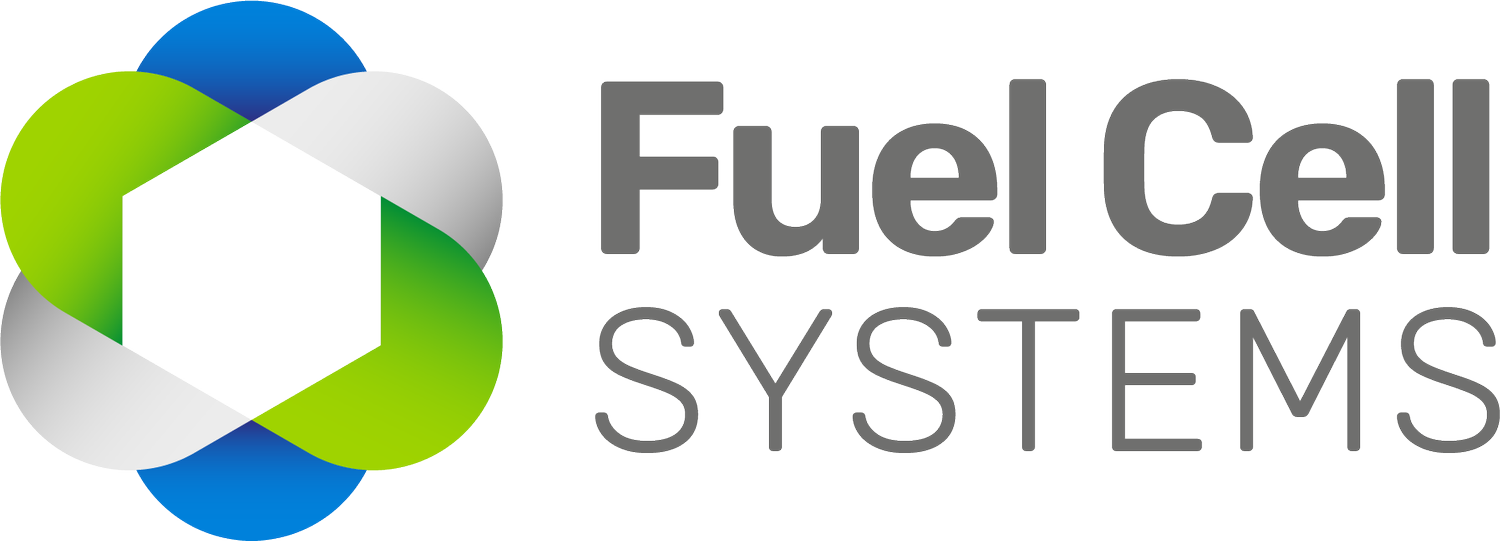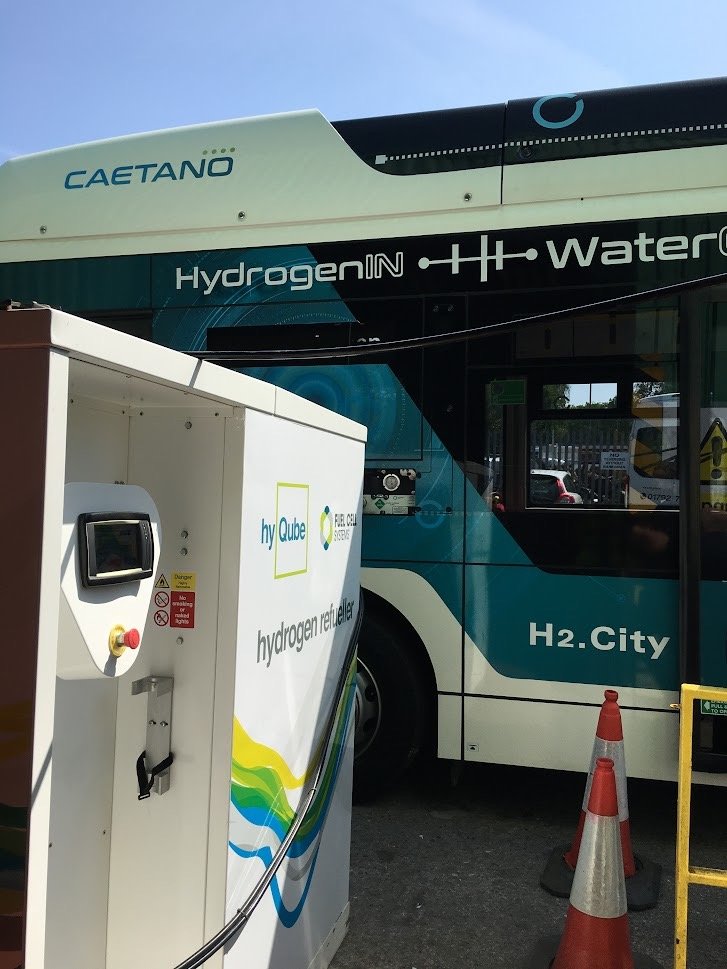Fuel Cell Systems Ltd Powers Green Zero-Emission Transport Initiative in South Wales
A green, zero-emission public transport demonstration is taking place in the Neat Port Talbot and Swansea area of South Wales.
South Wales transport and Hyppo Hydrogen Solutions are using locally produced green hydrogen made from renewable energy and local water to provide transportation services. The initiative is led by a private sector consortium in response to the climate change emergency.
The hydrogen-fuelled H2 City Gold electric bus is being provided by Caetano Bus UK. Fuel Cell Systems Ltd. is also playing a vital role in this project, by supplying the HyQube Refueller, a crucial component for this innovative transportation initiative. Protium is producing the hydrogen from their installation at the University of South Wales Hydrogen Centre.
HyQube refuelling H2 City Gold Bus
Swansea University exam students have already experienced the benefits of the bus, enjoying a quiet and pollution-free journey. The trial will continue to operate on the exam route between Neath bus station and the town of Pontardawe.
The use of hydrogen buses in hilly areas like Neath demonstrates their advantages over battery-powered buses. The initiative is supported by the Neath Port Talbot Council, which sees hydrogen-fuelled buses as a practical solution to decarbonise public transport. Cllr Jeremy Hurley, Neath Port Talbot Council’s Cabinet Member for Climate Change and Economic Growth, said:
“We are pleased to support these trials as the use of hydrogen is very much part of the council’s Decarbonisation and Renewable Energy (DARE) strategy. Hydrogen fuelled buses offer a practical solution for communities to decarbonise public transport and immediately improve air quality. These trials are great news for our county borough and the rest of the region as they could lead the way for cleaner public transport.”
Fuel Cell Systems Ltd, having had a successful trial in Milford Haven, believes in the commercial viability of hydrogen as a fuel source and sees the opportunity for production and refuelling sites in the region. Tom Chicken, CEO of FCSL, outlined:
“Hydrogen technologies are working and available now. We’ve shown this. It’s more important than ever before that we have energy security, independence, and emissions reduction and that we continue to show hydrogen as a commercially viable fuel source.”
Being involved in projects like this one showcases our commitment to decarbonising the transport sector and being at the forefront of the transition to sustainable energy solutions. By facilitating the use of locally-produced electrolytic green hydrogen from renewable sources, we are contributing to the reduction of carbon emissions and improving air quality. FCSL remains dedicated to advancing the commercialisation of hydrogen as a clean and efficient fuel source, thus promoting environmental sustainability.



